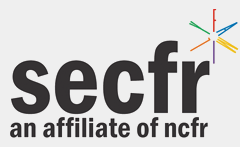Tales from the Mentor and the Mentee: Faculty-Student Collaborations in Undergraduate Student Research
Proposal Focus
Research
Presentation Type
Panel/Roundtable Session
Abstract
The benefits of undergraduate student research are vast and have been well documented by the literature (Lopatto, 2003, 2010; O’Donnell, Botelho, Brown, Gonzalez, & Head, 2015; Russell, Hancock, & McCullough, 2007) despite barriers that have withstood the test of time (Wayment & Dickson, 2008). The current workshop will be led by a faculty-student duo, both with extensive experience in undergraduate research. Using evidence-based research, presenters will provide an overview of the benefits and barriers to undergraduate research and will present a logic model used for successful faculty-student collaboration. An interactive component of this workshop will prompt audience members to construct personal logic models to specifically explore their goals and feasibility in undergraduate research programming.
Keywords
undergraduate research, faculty-student collaboration, logic model
Location
Wyndsor II
Start Date
4-4-2020 9:00 AM
End Date
4-4-2020 9:50 AM
Tales from the Mentor and the Mentee: Faculty-Student Collaborations in Undergraduate Student Research
Wyndsor II
The benefits of undergraduate student research are vast and have been well documented by the literature (Lopatto, 2003, 2010; O’Donnell, Botelho, Brown, Gonzalez, & Head, 2015; Russell, Hancock, & McCullough, 2007) despite barriers that have withstood the test of time (Wayment & Dickson, 2008). The current workshop will be led by a faculty-student duo, both with extensive experience in undergraduate research. Using evidence-based research, presenters will provide an overview of the benefits and barriers to undergraduate research and will present a logic model used for successful faculty-student collaboration. An interactive component of this workshop will prompt audience members to construct personal logic models to specifically explore their goals and feasibility in undergraduate research programming.
![Southeastern Council on Family Relations Conference [2018-2020]](/assets/md5images/a0d3661d5139dc9b769a57be6f085156.png)

